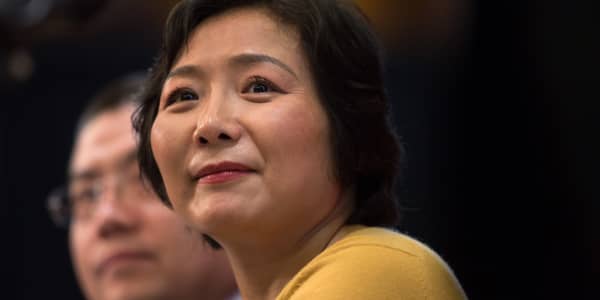Millionaires are not hard to come by in Hong Kong, so the recent wild ride in global stock markets has thrown up serious challenges for what is a reasonable-size chunk of the population.
Lowering risk in an uncertain climate has been one of those challenges, top asset managers told CNBC.
"One of the main questions for many investors who are relatively conservative is how to sensibly invest in today's low interest rate and high stock market volatility environment," Alois Mueller, head of Wealth Management North Asia at Rothschild Hong Kong, said.
"A sensible alternative is to add a few solid high dividend stocks, but recent market volatility, especially in the local markets here, have made investors nervous."
Read MoreChina volatility cements HK's finance hub crown
In the past, Hong Kong's high net worth individuals (HNWIs) have relied on carry trades as a relatively safe investment.
Mueller noted: "Many clients over the past few years have invested in alternative currencies - AUD, CAD and the like - as a result of the low interest rates on USD bonds and HKD cash deposits. In many cases, this provided them not only with a higher coupon than in USD/HKD, but also the chance of a currency appreciation."
"This has changed dramatically with the U.S. dollar strengthening over the recent past, and so this apparently low-risk option has gone away, and in some cases led to painful losses."
Once asset class Hong Kong's HNWIs - a group that numbered almost 194,000 last year, according to Knight Frank's Wealth Report 2015 - are now looking to for security is property, particularly as Hong Kong's wealthy are typically keen to invest their money where it can also be passed down to the next generation.
Now, with local property prices expected to rise, HNWIs are increasingly investing in foreign real estate.

"If you look at the recent purchases of Hong Kong's HNWIs, they love to purchase properties overseas," says Thomas Lam, Senior Director and Head of Valuation & Consultancy at Knight Frank. "The older HNWIs may focus on Hong Kong, but the younger are looking in places like the U.K., the U.S., Australia and Europe."
These properties are considered somewhat of a safe haven: "Places like London or New York would be more secure because of the economy, their policies and the law. It's easier to purchase, and easier to liquidate," Lam added.
Tumultuous markets aside, inheritance structures are always a concern for Hong Kong's wealthy.
Given the high rate of family disputes, divorce and the global nature of their investments – as well as the complexities of the international tax environment – older wealthy individuals rely heavily on advice from lawyers, tax experts and financial planners, Mueller said.
But for younger entrepreneurs, succession is an easier process.
"Different from their predecessors, many of the younger entrepreneurs are embracing the concept of being a 'serial entrepreneur'," Mueller said. "This means they invest, build and then sell out to the best-suited partner with an arms' length attitude – and then start again with a new venture."
This attitude tends to "shield families more from disputes around the topic of who should succeed whom," he added.
Read MoreHK: The future is fintech, among other innovations
Hong Kong-based wealth managers also report seeing an increased interest in inheritance management advice from mainland HNWIs.
Kaven Leung, Deputy Region Head Asia Pacific at Julius Baer, said that now China had gone through its first, fast phase of private wealth generation, individuals were beginning to think about succession planning.
"I think going forward, in the next five [to] ten years, we will be seeing a period of time where wealth will be passing on to next generation," he said
And while most attention is currently being given to financial anxieties related to market turmoil and political stability, overseas education for the next generation is a perennial concern.
"It's health and education," Thomas Lam said. "Based on previous research you can see more than 70 to 80 percent of HNWIs are sending their kids to education overseas."




